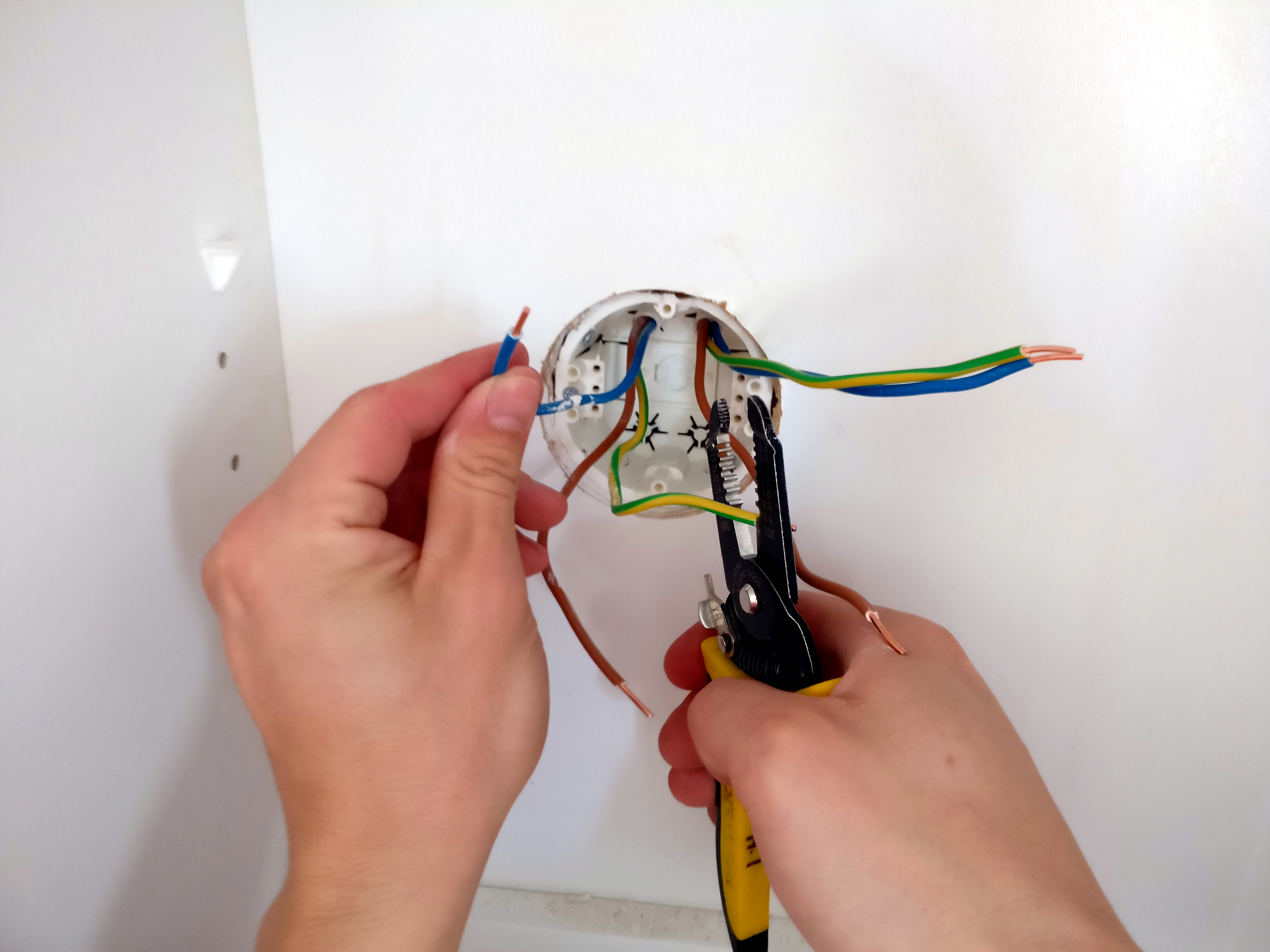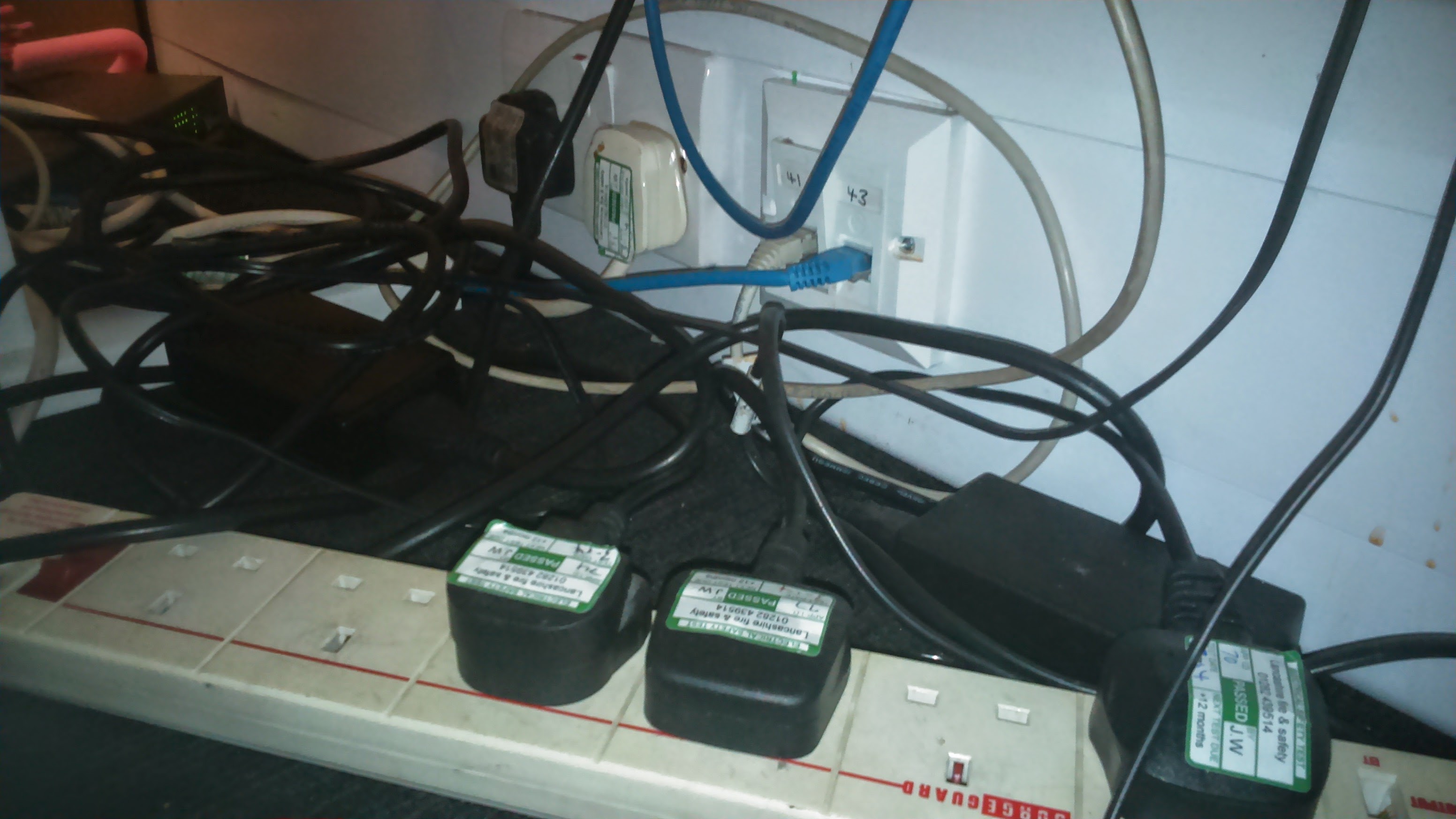Common Electrical Problems in Commercial Buildings and How to Solve Them
Common electrical problems often disrupt business operations and pose safety hazards in the bustling commercial sector of London. Here, we’ll discuss some of these issues encountered in commercial buildings and provide practical solutions.
Common Electrical Problems in Commercial Buildings
- Flickering Lights: Flickering or dimming lights may indicate loose wiring, faulty fixtures, or overloaded circuits.
- Tripped Circuit Breakers: Frequent tripped breakers can result from electrical overloads, short circuits, or damaged wiring.
- Electrical Surges: Surges can damage equipment and affect the lifespan of electrical devices.
- Overloaded Circuits: Overloading circuits can lead to overheating and fires.
Solutions for Commercial Electrical Issues
- Regular Maintenance: Schedule routine electrical inspections and maintenance to identify and rectify issues before they escalate.
- Circuit Load Balancing: Distribute electrical loads evenly across circuits to prevent overloads.
- Upgraded Wiring: Consider rewiring older buildings to meet modern electrical demands and safety standards.
- Surge Protection: Install surge protectors to safeguard electrical equipment from voltage spikes.
- Emergency Services: Have a plan in place for emergency electrical services to minimize downtime during unexpected issues.
By addressing these common electrical problems promptly, London’s commercial establishments can ensure smooth operations and a safe working environment.
In addition to the mentioned issues, other common electrical problems in commercial buildings may include faulty outlets, wiring insulation degradation, and power fluctuations. It’s crucial for businesses to be proactive in identifying and resolving these issues to prevent disruptions and ensure workplace safety.
Moreover, collaborating with qualified electrical contractors can provide businesses with professional expertise and tailored solutions to address their specific electrical needs. These experts can conduct thorough assessments, recommend appropriate upgrades, and implement effective maintenance plans to keep electrical systems in optimal condition.
Commercial Electrical Maintenance: Tips to Keep Your Business Running Smoothly
In the dynamic and fast-paced business landscape of London, electrical systems play a critical role in the day-to-day operations of commercial enterprises. To ensure the seamless functioning of your business, it is imperative to prioritize regular electrical maintenance. This not only prevents unexpected downtimes but also guarantees the safety and efficiency of your electrical systems. Here, we delve into essential tips for effective commercial electrical maintenance.
The Importance of Regular Maintenance
Regular maintenance of your commercial electrical systems is a proactive measure that offers several key benefits, contributing to the overall success of your business:
- Downtime Prevention: Unplanned electrical failures can bring your business to a standstill, resulting in significant revenue loss. By investing in regular maintenance, you minimize the risk of unexpected downtimes and ensure uninterrupted business operations.
- Safety Assurance: Safety is paramount in any commercial space. Regular electrical maintenance helps identify and rectify potential hazards before they escalate, ensuring a safe working environment for employees and visitors.
- Energy Efficiency: Well-maintained electrical systems are inherently more energy-efficient. This not only leads to cost savings on your electricity bills but also aligns with environmental sustainability goals, contributing to your corporate social responsibility efforts.
Tips for Effective Commercial Electrical Maintenance
Implementing a comprehensive electrical maintenance plan for your commercial space involves considering various factors. Here are some practical tips to enhance the effectiveness of your maintenance efforts:
- Scheduled Inspections: Arrange for regular electrical inspections conducted by qualified professionals. These inspections assess the overall condition of your electrical systems, identify potential issues, and recommend corrective measures.
- Emergency Planning: Develop detailed emergency protocols to handle unforeseen electrical failures. Having backup power solutions, such as generators or uninterruptible power supplies (UPS), can mitigate the impact of power outages on your business operations.
- Upkeep of Emergency Lighting: Emergency lighting systems play a crucial role during power outages or emergencies. Regularly test and maintain these systems to ensure they function correctly when needed, providing illumination and safety for occupants.
- Energy Audits: Conduct regular energy audits to identify areas where energy efficiency improvements can be made. This may involve upgrading to energy-efficient lighting fixtures, optimizing the use of heating, ventilation, and air conditioning (HVAC) systems, and implementing other energy-saving measures.
- Employee Training: Empower your employees to recognize and report electrical issues promptly. Providing basic training on electrical safety awareness can contribute to the early detection of potential problems, preventing them from escalating into major issues.
By implementing these tips, you can significantly enhance the reliability and longevity of your commercial electrical systems. Regular maintenance not only safeguards your business but also contributes to a positive and secure working environment.
Choosing a Reliable Electrical Maintenance Partner
Selecting the right partner for your commercial electrical maintenance is crucial. Consider partnering with a reputable electrical maintenance service provider with a proven track record in servicing businesses in London. Look for the following attributes in a reliable maintenance partner:
- Experience and Expertise: Choose a service provider with extensive experience in commercial electrical maintenance. An experienced team is better equipped to handle diverse electrical systems and identify potential issues.
- Qualified Professionals: Ensure that the maintenance team consists of qualified electricians and technicians. Professional certifications and training are indicators of competence and adherence to safety standards.</
How to Save Electricity: Practical Steps for a Greener Lifestyle
Save electricity
If you're looking to cut down on your energy consumption and save electricity and money on your electricity bills, there are many simple steps you can take to make your home more energy-efficient. Here are some practical tips to help you save electricity and reduce your environmental impact.
- Upgrade your light bulbs: Switching to energy-efficient LED light bulbs can significantly reduce your electricity consumption. They last much longer than traditional incandescent bulbs and use up to 80% less energy, helping you save money in the long run.
- Unplug appliances when not in use: Many electronic devices continue to consume electricity even when they're not being used. Unplugging them when they're not in use can help you save a significant amount of energy. You can also use smart power strips that automatically turn off devices when they're not in use.
- Use energy-efficient appliances: When shopping for new appliances, look for those with an Energy Star label. These appliances are designed to use less energy and are more environmentally friendly.
- Adjust your thermostat: Setting your thermostat a few degrees lower in the winter and a few degrees higher in the summer can make a significant difference in your energy consumption. You can also invest in a programmable thermostat that automatically adjusts the temperature based on your schedule.
- Seal air leaks: Air leaks can cause significant energy loss in your home. Sealing gaps and cracks around doors, windows, and other areas can help you save energy and money on your electricity bills.
- Use natural light: Take advantage of natural light during the day by opening curtains and blinds. This can help reduce your need for artificial lighting, saving you money on your electricity bills.
- Wash clothes in cold water: Washing your clothes in cold water instead of hot water can help you save a significant amount of energy. You can also air-dry your clothes instead of using a dryer.
- Install ceiling fans: Ceiling fans can help you circulate air and keep your home cool in the summer and warm in the winter. This can help reduce your need for heating and cooling, saving you money on your electricity bills.
- Plant trees and shrubs: Planting trees and shrubs around your home can help provide shade and insulation, reducing your need for air conditioning in the summer and heating in the winter.
- Get an energy audit: An energy audit can help you identify areas where you can improve your home's energy efficiency. This can help you save money on your electricity bills and reduce your environmental impact.
By following these practical tips, you can make your home more energy-efficient and reduce your environmental impact. Small changes can make a significant difference, both for the planet and for your wallet.
Electrical Safety Tips: Don't get zapped! How to stay safe around electricity.
Electrical safety tips
Electricity is one of the most amazing forces in the world. It powers our homes and businesses, runs our appliances, and keeps us connected to the world. But did you know that electricity can also be dangerous? That’s right, from exposed wires to overloaded outlets, electrical hazards are all around us. But don’t worry – we’ve got you covered with these online safety tips to help you stay safe around electricity.
Tip #1: Beware of electrical hazards
Electrical hazards can be sneaky, hiding in plain sight. From frayed cords to damaged equipment, make sure you’re aware of the risks and take steps to eliminate them. A little extra caution goes a long way in preventing accidents!
Tip #2: Keep your hands dry
Water and electricity don’t mix! Before handling any electrical equipment, make sure your hands are dry. Wet hands can conduct electricity and cause shocks. Stay safe by keeping your hands dry and using gloves when necessary.
Tip #3: Use equipment safely
Electrical equipment is designed for a specific purpose, so it’s important to use it the right way. Never modify electrical equipment, use it in a way that it wasn’t intended for, or attempt to repair it yourself. Doing so can lead to dangerous accidents or even death.
Tip #4: Install residual current devices (RCDs)
RCDs are a life-saving device that protect you from electrical shock. They detect electrical leaks and shut off power to the circuit if a leak is detected. Make sure to install RCDs in all areas where water is present, such as bathrooms, kitchens, and outdoor areas.
Tip #5: Avoid overloading outlets
Overloading outlets can lead to electrical fires, which can be devastating. Make sure you are using the right type of outlet for the equipment you are using, and don’t plug too many devices into one outlet. It’s better to be safe than sorry!
Tip #6: Use extension cords wisely
Extension cords are a convenient solution, but they should only be used on a temporary basis. Make sure they are in good condition and are rated for the equipment you are using. Avoid tripping hazards by taping them down or hiding them behind furniture.
Tip #7: Know what to do in case of an electrical emergency.
In case of an electrical emergency, it’s important to stay calm and act quickly. If someone is being electrocuted, don’t touch them – instead, turn off the power source or use a non-conductive object to push the person away from the source of the electricity. Remember, every second counts in an emergency!
By following these electrical safety tips, you can keep yourself and others safe around electricity. Don’t let electrical hazards ruin your day – take control and stay safe!

If you’re not comfortable repairing or installing any small electrical issue, it’s best to hire a licensed electrician or professional handyman to do the job for you.
